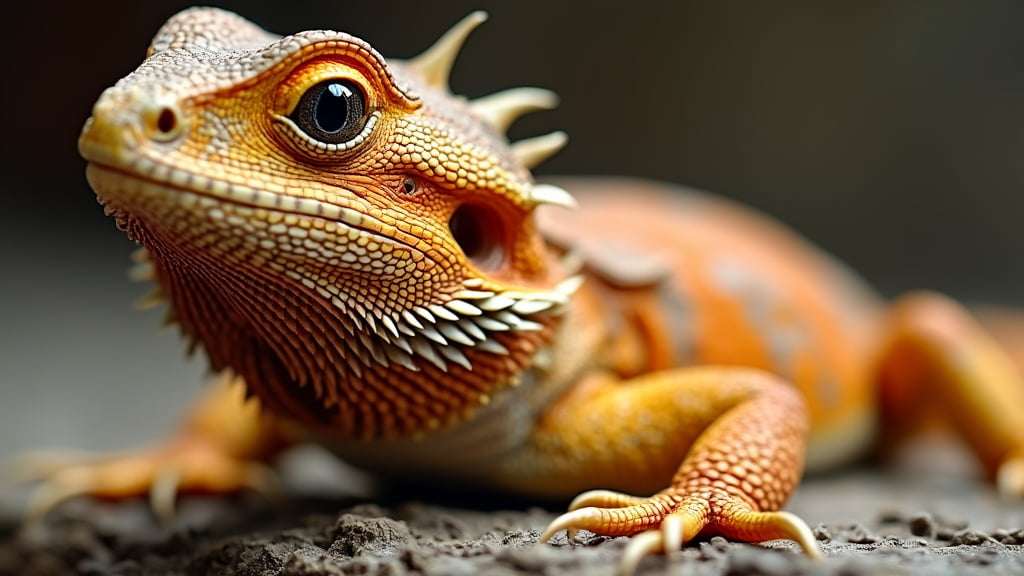Nutrition’s Role in Bearded Dragon Shedding
Introduction
Shedding can be a crucial aspect of a bearded dragon’s health and well-being. As an experienced exotic pet owner, I’ve navigated the shedding cycles of bearded dragons countless times. One of the most significant factors in supporting a healthy shed is nutrition. In this blog post, you’ll discover how a balanced diet can ensure seamless shedding for your scaly friend. Whether you’re a first-time beardie parent or a seasoned herpetologist, understanding the intricacies of nutrition’s role in shedding is paramount.
The Basics of Bearded Dragon Shedding
Before delving into nutrition, it’s essential to grasp the basics of why and how bearded dragons shed.
Why Do Bearded Dragons Shed?
Shedding, or ecdysis, is a natural process for bearded dragons. It allows them to grow and replace old, damaged scales with new ones. Young bearded dragons shed more frequently due to rapid growth, while adult dragons may shed a few times a year.
Signs Your Bearded Dragon is About to Shed
Knowing the signs can help you prepare:
- Dull Colouration: Your dragon’s vibrant colours may fade.
- Behavioural Changes: You might notice mood swings or changes in activity levels.
- Raised or Tight Skin: The old skin can appear lifted or taut in areas.
How Nutrition Impacts Shedding
Proper nutrition is the backbone of a successful shedding cycle. Here’s why it matters and how you can optimise your dragon’s diet.
Essential Vitamins and Minerals
Vitamins and minerals play a pivotal role in skin health and overall physiology.
- Vitamin A: Crucial for skin health. Deficiencies can lead to shedding issues.
- Calcium and Phosphorus: A balanced calcium-phosphorus ratio supports strong bones and skin integrity.
- Vitamin D3: Assists calcium absorption, which indirectly affects skin and shedding.
Including a variety of vegetables like squash, peppers, and leafy greens can enhance vitamin intake. I’ve found that offering a mix of these every other day keeps my dragons vibrant and healthy.
Protein and Hydration
A proper protein intake and hydration are equally vital.
- Insects: Protein from insects such as crickets and mealworms supports growth and health.
- Hydration: A hydrated dragon sheds more effortlessly. Freshwater and moisture-rich vegetables such as cucumber can help.
In my experience, misting your dragon occasionally and providing a shallow water dish encourages hydration from both drinking and absorption through the skin.
Common Nutritional Mistakes and How to Avoid Them
Even the best-intentioned dragon owners can make nutritional missteps. Recognising and rectifying these mistakes can make shedding smoother.
Feeding Inadequate Insects
While insects are essential, not all insects are created equal. Avoid feeding only low-nutrient insects like waxworms. Instead, focus on nutrient-dense options like crickets, roaches, and locusts.
Overlooking Gut-Loading
Gut-loading is the process of feeding nutritious foods to the insects before offering them to your dragon. This enriches the nutritional content your dragon receives, enhancing their overall health. I always ensure that my crickets are gut-loaded with high-calcium greens and other vegetables.
Ignoring Supplements
Even with a varied diet, supplements are often necessary. Calcium powder with vitamin D3 and a good multivitamin contribute to balanced nutrition. Alternating these supplements several times a week can make a significant difference.
Practical Tips for Optimising Nutrition
Enhancing your bearded dragon’s diet doesn’t have to be complicated. Here are some practical tips that have worked wonders for my beardies.
Rotating a Diverse Diet
Offer a mix of vegetables, fruits, and insects. This ensures your dragon gets a broad spectrum of nutrients.
Using Commercial Diets Wisely
Quality commercial diets can supplement fresh foods. Brands like Repashy offer excellent options that have been beneficial for my dragons, especially during shedding.
Monitoring and Adjusting
Keep an eye on your dragon’s behaviour and shedding. If shedding appears patchy or incomplete, reevaluate their diet and consult a vet if necessary.
Conclusion
A balanced, nutrient-rich diet is instrumental for smooth and successful shedding in bearded dragons. By understanding the role of vitamins, minerals, protein, and hydration, and avoiding common nutritional mistakes, you can support your bearded dragon through every shed. Remember to provide a diverse diet, gut-load insects, and use supplements judiciously. Always consult with a reptile-savvy vet for persistent shedding issues.
For further guidance on bearded dragon care, check out our comprehensive care guide. With the right nutrition, your dragon will be shedding like a pro in no time!
Meta Description
Learn how nutrition impacts bearded dragon shedding. Discover essential vitamins, minerals, and practical dietary tips to support healthy shedding cycles.

